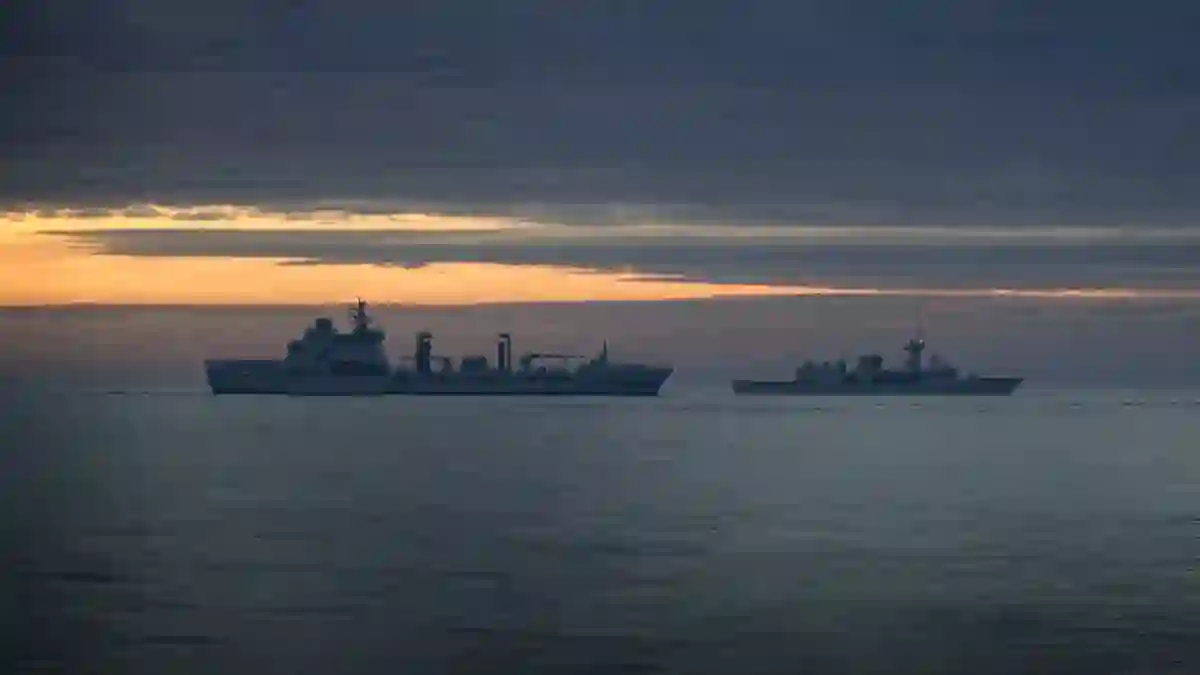In the ongoing chess match between Russia and the West, it now seems the Kremlin might be setting the board for its next risky move — but this time, the focus isn’t on tanks or troops.
It’s on oil tankers quietly sailing across international waters.
Behind these ships, a new web of deception appears to be unraveling.
Russia Accuses Britain of Plotting Attacks at Sea
Russia’s foreign intelligence agency, the SVR, has raised eyebrows after claiming that British intelligence is planning an environmental disaster at sea — supposedly targeting Moscow’s so-called “shadow fleet.”
These are ships used to sneak Russian oil past sanctions imposed by Western countries.
According to the SVR’s narrative, the UK is allegedly working with NATO allies to stage what would appear to be accidents involving these tankers.
The goal? To create a large-scale ecological catastrophe that would justify even tougher sanctions against Russia.
Experts Sound the Alarm on a Possible Russian Setup
But not everyone is buying the story at face value.
Military experts and intelligence analysts are warning that this may be a classic case of projection — Russia accusing others of the very thing it may be preparing to do itself.
Dr. Sidharth Kaushal, a research fellow at the Royal United Services Institute (RUSI), pointed out that this could be Russia laying the groundwork for a false flag operation.
Essentially, Moscow could sabotage its own ships and pin the blame on the UK to create diplomatic chaos or justify new restrictions on Western shipping.
Shadow Fleet Explosions Raise Eyebrows
The suspicion comes after a string of mysterious explosions affecting at least six Russian-linked oil tankers since the beginning of the year.
Each of these vessels was either docked in Russian ports or carrying Russian oil at the time.
While blame has quietly drifted toward Ukraine for some of these incidents, the details remain murky — and that ambiguity is fertile ground for geopolitical manipulation.
How Russia’s Shadow Fleet Dodges Sanctions
The so-called “shadow fleet” isn’t just a catchy term — it’s a real network of over-aged ships, often more than 15 years old, that are used to transport Russian oil under the radar.
To avoid detection, these vessels routinely turn off their identification systems, switch flags mid-route, and transfer oil between ships to disguise where it’s coming from and where it’s going.
By the time the oil reaches its final destination, it’s almost impossible to trace — and that’s exactly the point.
UK’s National Crime Agency Rings the Alarm
Britain’s National Crime Agency (NCA) recently sent out an alert to financial institutions, warning them that Russian oil traders are using a spiderweb of shell companies and shady shipping practices to get around international sanctions.
Despite the UK banning the maritime transport of Russian oil, these shadowy dealings are keeping money flowing into the Kremlin.
The NCA is particularly concerned about how these networks rely on Western financial and legal services to stay in business — services that should be out of reach under current sanctions.
Sanctions Bite — But Not Hard Enough?
Sanctions have been aimed at choking off the Russian war machine by targeting oil and gas exports — the lifeblood of the country’s economy.
In 2024 alone, around 30% of Russia’s federal budget was funded through oil and gas sales.
Yet despite these efforts, Russian oil is still finding its way into global markets, thanks to crafty rerouting and opaque corporate structures that blur accountability.
Hundreds of Tankers Already Blacklisted
Western governments are not sitting idle. Over 400 shadow fleet vessels have already been hit with sanctions by the UK, EU, US, and Canada.
But this sprawling web of ghost ships and front companies continues to test the limits of enforcement.
The more complicated and secretive the network, the harder it becomes for authorities to clamp down — and the more dangerous the entire situation becomes for everyone involved.
What’s Really at Stake Here?
If Russia is indeed planning to sabotage its own fleet and blame the West, it wouldn’t just be a propaganda move — it could lead to real-world fallout.
Think disrupted oil markets, increased tensions with NATO, and possibly even military escalations under the guise of “defensive” retaliation.
As the geopolitical theatre expands from battlegrounds to boardrooms and now to the high seas, the stakes are getting higher — and the tactics more cunning.
Final Word: Watch the Waters
While it’s still unclear what will happen next, one thing is certain: the waters aren’t just murky — they’re potentially treacherous.
Whether it’s truth, deception, or something in between, the global community will be watching every ripple.
